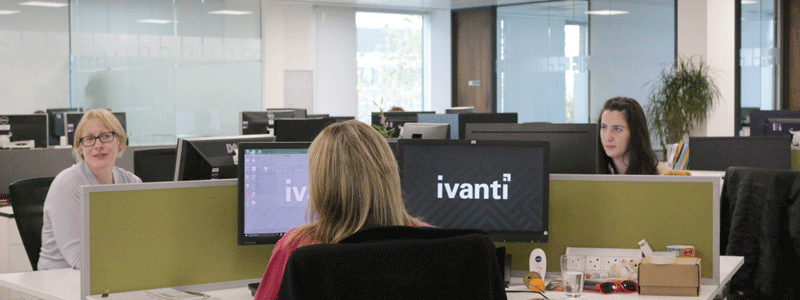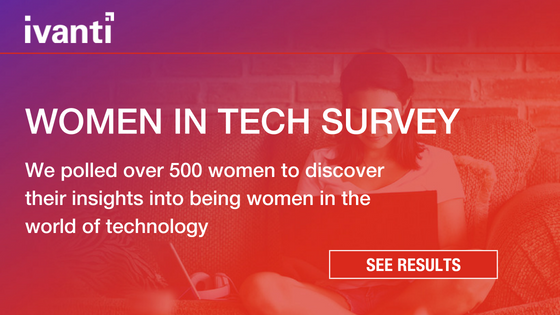What Inspired Women to Get Into Technology
The results from our survey were very interesting. When asked how they got into the field of technology, 46% of the women surveyed said that they "just fell into it".
Some people at Ivanti were shocked at this, but I’m not that surprised. How many schoolchildren really know what they want to be when they grow up? I hear my niece and nephew mention vet, teacher, and nursery nurse. I’d be gobsmacked if they’d told me they wanted to be an IT director! I put their current aspirations down to roles that they’re familiar with and know about. They take their cat and rabbit to the vets, they go to school, they’ve been to nursery. These are jobs that they know and understand to some degree. Maybe herein lies the challenge of educating schoolchildren on other careers outside of the norm.
Making Tech Careers Appealing to Children
Egmont Publishing released a new book in 2017 titled Little Miss Inventor, which was a massive hit with the women in tech community. All children have heard of Mr. Men books, and what a great way of having children understand how science can be applied to a career. Just Googling "children’s STEM books", there are a ton of them out there, but how many kids nowadays sit and read a book? iPads and games are more likely to be the favourites! And yes, there are STEM apps too, but I'm not sure if they can compete with the latest must-play games. Maybe this is something the app industry needs to look at. How can they play a greater part in STEM education?
STEM
Ivanti and many other organisations provide charitable support for STEM initiatives in schools. Ivanti provides paid time off for staff (regardless of gender) to volunteer and help teach coding in schools. Not only does this teach kids new skills, but it also helps them to identify if they like STEM subjects or are good at them.
Nearly 30% of our respondents said being good at maths/science inspired them to get into technology.
The least common answer to the question of what inspired women to get into technology was “role-model at school”. This could easily be solved by having more women providing STEM education and fulfilling that vital piece of a role-model. Another thought on this, many companies attend career fairs but these are usually aimed at more senior schoolchildren. Maybe there’s an opportunity here for tech vendors and companies to host career fairs at an earlier age, providing younger children with insight on our tech world. At this stage in a child’s school journey, they’d be able to start thinking about their subjects, what they like, what they're good at, how those topics help them gain a job at a tech company. Food for thought?

